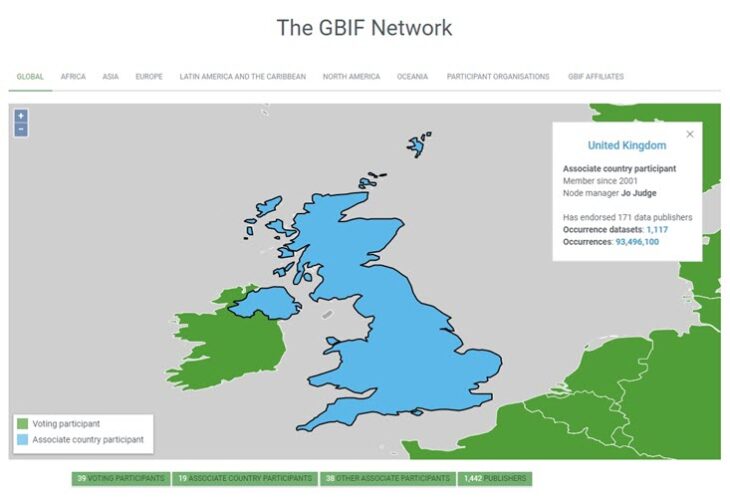New GBIF Science Review demonstrates the power of free and open biodiversity data
GBIF-mediated data is everyone’s data. It represents the accumulation of efforts—from small university collections to large, globally recognised museum research institutions, from citizen scientist initiatives run on smartphone to the latest metagenomic studies. The power of these efforts is compounded when data is brought together to be free and open for all to use.
The GBIF 2019 Science Review demonstrates some of the power of a community working together. Take, for example, a research project by Watcharamongkoi et al. (2018) at the University of Sheffield and funded by the Thailand government, which studied C? photosynthesis evolution. They used nearly 15 million occurrence records from the GBIF network to investigate potential geographic boundary limits for C? photosynthetic plants. The impressive aspect is that these records came from 1,453 individual datasets, not just from large European and North American herbaria, but also from institutions in Benin, Colombia, Brazil, Estonia, Australia and Japan. Global studies of this kind would not be possible without a GBIF.
This year’s Review also highlights several key studies with broad societal implications that relied on similar uses of data from thousands of sources. Possibly the most important link revealed through our literature tracking programme this year is the role that GBIF-mediated data has in the biodiversity-related assessments of the latest Intergovernmental Panel on Climate Change Special Report. The report rightfully received a lot of media publicity for its high-profile call to action, though few will have known at the time that the report relies heavily on work (Warren et al. (2018)) based directly on the analysis of 385 million occurrences from more than 5,400 datasets from the GBIF network.
These global analyses will become more common with increasing amounts of data available through GBIF. Through its work to improve the culture and practice of research data citation, GBIF aims to give credit to the organisations that share data and the professionals who perform the work. GBIF is deeply grateful to all those involved in this.
Through the NBN and NBN Atlas, the UK, contributes to the data that is available through GBIF, adding to the power of open biodiversity data from a UK perspective.

